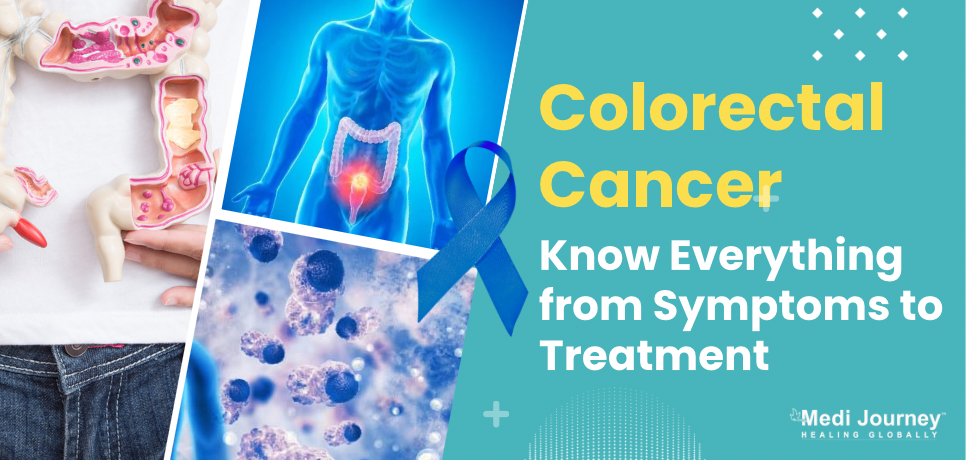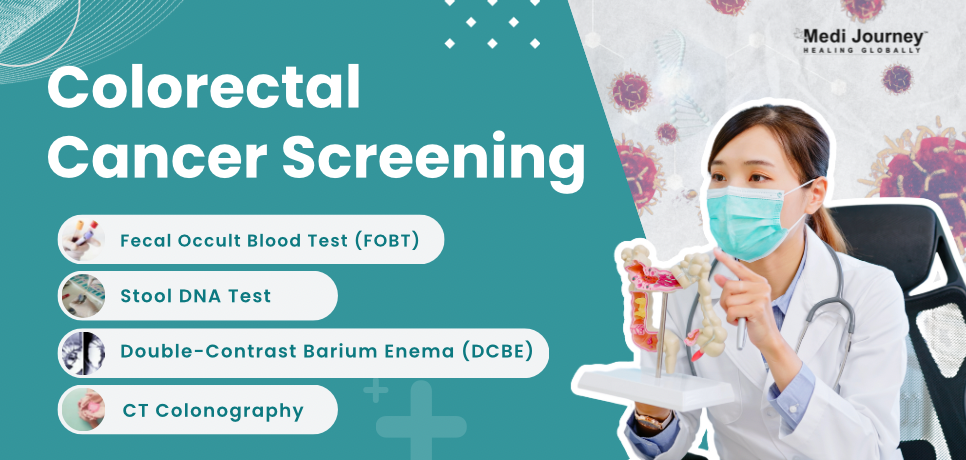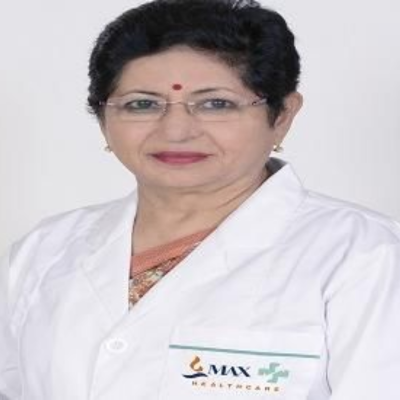Heart Surgery: Types, Subspecialties, and Conditions Treated
 10 December,2024
Read More
10 December,2024
Read More
Enquire now in case of any assistance needed
 04 April,2024
04 April,2024

Colorectal cancer is a common type of cancer affecting the colon or rectum, both of which are vital parts of the digestive system. It is one of the most frequently diagnosed cancers in the world and can have severe consequences if not detected and treated early. Early detection of cancer/tumors greatly increases the chances of successful treatment.
Oncologists can completely cure colorectal cancer if it has not spread outside the bowel. Once diagnosed, the treatment of colon cancer involves a multidisciplinary approach that may include surgery, chemotherapy, radiation therapy, targeted therapy, and immunotherapy.
The blog aims to educate people about colorectal cancer, its symptoms, diagnosis, treatment, and prevention techniques.
Colorectal cancer is a disease marked by the unregulated growth of cells in the colon or rectum region. The colon is the large intestine, and the rectum is the passage that connects it to the anus. Both are an essential part of the human digestive system.
According to the data published by WHO, colorectal cancer was responsible for approximately 1 million deaths in 2020. It majorly affects people aged 50 and above.
Polyps are the most common abnormal growths in the colon that turn into cancer if left untreated for a long time. Regular screening helps detect polyps and cancers in the colorectal region in the early stages. The chances of a complete cure are higher in the initial stages of the disease.
As with other cancers, colorectal cancer and polyps do not show any prominent signs and symptoms in the beginning. People can have colorectal cancer for quite some time, and they might not even know! This gives more and more reasons for people aged 40 and above to have regular screenings.
Common symptoms of colorectal cancer include –
These symptoms can also indicate less serious conditions of the gastrointestinal tract. Hence, it is vital to consult a specialist who can confirm the diagnosis.

Colorectal cancer screening is the best way to detect cancer of the colon and rectum in the early stages. It significantly helps in reducing the number of deaths caused by cancer. Screening tests for colorectal cancer are recommended for people having a personal or family history of colorectal cancer or for those suffering from chronic inflammatory bowel disease.
Tests done to screen colorectal cancer include –
The recommended schedule for various colorectal screening tests is as follows –
Various diagnostic tests are available to detect colorectal cancers. Diagnostic tests are selected based on the patient's overall health, signs and symptoms, type of cancer suspected, and family history.
The most frequently used tests for colorectal cancer diagnosis are –
Continuous research and advancements in medical technology have made numerous treatment options available for colorectal cancer. Depending on your cancer stage and physical health, the oncologist may use a multidisciplinary approach, combining different treatments for optimized results.
Surgical excision of the tumor is a primary treatment modality for most cancers, including colorectal cancer.
Oncologists worldwide use different treatment approaches for specific stages of colon cancer. Below is a general outline of the treatment approach for each stage of colon cancer:
The cost of colorectal cancer treatment varies worldwide. Western nations like the USA and the UK offer colon cancer treatment at approximately USD 30,000. But you don't need to be disheartened by these costs. Several countries, like India, Germany, Egypt, etc., offer high-quality cancer treatment at more affordable rates.
The cost of colorectal cancer treatment in India ranges from USD 4,000 to USD 8,000. It includes diagnostic tests, hospital stays, medicines, surgeon's fees, OT charges, and post-operative costs.

You can reduce the risk of having colorectal cancer by following a few measures. The first one involves regular colon cancer screening. Others include –
Colorectal cancer is a serious issue, but early detection through screenings makes a big difference. Because more people are getting screened, doctors can find and treat the cancer before it causes problems. It leads to much better outcomes, with over 90% of people with early-stage colon cancer surviving for 5 years after diagnosis. There are even newer, targeted treatments available for colon cancer. Talk to your doctor about these options if you've been diagnosed.
Doctor of Pharmacy
Dr. Deepanshu Siwach is a skilled clinical pharmacist with a Doctor of Pharmacy degree. He has 4+ years of experience and has worked with thousands of patients. He has been associated with some of the top hospitals, such as Artemis Gurgaon.
Dr. Vivek Gupta is an experienced Surgical Oncologist with over 16 years of practice....
Senior Consultant
Medical Oncologist
Nanavati-Max Super Speciality Hospital, Mumbai
Book an Appointment Talk To ExpertSenior Director
Gynecologist and Obstetrician, IVF Specialist
Max Super Speciality Hospital, Shalimar Bagh, New Delhi
Book an Appointment Talk To ExpertSenior Director
Gynecologist and Obstetrician, IVF Specialist
Max Smart Super Speciality Hospital, Saket, New Delhi
Book an Appointment Talk To ExpertSenior Director
Gynecologist and Obstetrician
Max Smart Super Speciality Hospital, Saket, New Delhi
Book an Appointment Talk To ExpertSenior Director
Gynecologist and Obstetrician
Max Smart Super Speciality Hospital, Saket, New Delhi
Book an Appointment Talk To ExpertSenior Director
Gynecologist and Obstetrician
Max Smart Super Speciality Hospital, Saket, New Delhi
Book an Appointment Talk To ExpertFill up the form and get assured assitance within 24 hrs!
The Art of Effective Communication
 10 December,2024
Read More
10 December,2024
Read More
 05 December,2024
Read More
05 December,2024
Read More
 04 December,2024
Read More
04 December,2024
Read More
 02 December,2024
Read More
02 December,2024
Read More
 27 November,2024
Read More
27 November,2024
Read More
Trusted by Patients
"I am Asim from Bangladesh and was looking for treatment in India for neuro. I visited many websites to get the complete information regarding the treatment but I was not satisfied as I was getting confused. In the meanwhile, one of my friends suggested I seek help from Medi Journey as he experienced his medical journey very smoothly and was satisfied with it. They have filtered the top 10 doctors as per experience, the success rate of surgery & profile, so it helps us to choose the best treatment in India. "
"For my knee surgery, Medi Journey guided me to BLK Hospital where I received exceptional care. The team's support and the expertise at BLK Hospital exceeded my expectations. Thank you Medi Journey for making my medical journey stress-free. "
"I came from Iraq for my granddaughter's eye surgery in India facilitated by Medi Journey, due to critical cases they advised us to get a second opinion from the different hospitals before going to surgery. Finally, we went to Fortis Escort Hospital, which helped us to get more confidence for diagnosis. Fortis Escort Hospital has the best eye surgeon team with the latest instruments. Thanks to all team members for providing a high-quality treatment in India at an affordable cost. "
"I came for my hair transplant in India, before coming I was so confused about choosing the best clinic and surgeon for me. But thanks to God one of my friends had a hair transplant in India through Medi Journey. He recommended me to go with them. I am completely happy with my experience with them. They were always very fast in their responses to me. the success rate of my hair transplant surgery is 100%."
"Artemis Hospital, suggested by Medi Journey, turned out to be a great choice for my treatment. The personalized assistance and medical care were exceptional. I'm grateful to Medi Journey for guiding me to a hospital that perfectly matched my needs. Highly recommended! "
"I came from Afghanistan for my treatment in India at Jaypee Hospital, Noida. I had a fantastic experience with Medi Journey. Kudos to them for their incredible support during my medical journey. They not only took care of all the logistics but also connected me with a fantastic healthcare team. Efficient, caring, and highly recommended for a hassle-free medical tourism experience."
"I am Adam from Kano, Nigeria, one of my friends from Nigeria was facilitated by Medi Journey, and he recommended us to go with them. I sent my all reports to them and within 48 hours they reverted with 4 options from different hospitals. They helped me to get a Visa letter from the hospital, arrange pick-up from the airport, and book a hotel for me. Their team is very honest and throughout our stay in India they are with us they are caring for us like his family members. BLK Hospital is the best hospital in India with a top surgical oncologist surgeon team, a very advanced OT, and a Radiotherapy department. I wish more success to Medi Journey. "
"Great experience at the Max Hospital for my spine surgery and was successfully done. I thank my neurosurgeon and his entire team. I recommended all of my country's people to Medi Journey for treatment in India, they choose the best hospital, the best doctors, and the best cost for patients."
"I came to India from Dhaka, Bangladesh for my father-in-law's cardiac surgery at Fortis Hospital. I was confused about choosing the best surgeon for him before coming, but their team helped me to choose the best hospital and best cardiac surgeon in India with very good cost and 100% success rate of surgery. I am very happy with the services, really they make my journey so comfortable that make me feel at home. Thanks again and I like people to choose "Medi Journey" as your travel guide. "
"I am Mohammad from Bangladesh came to India for my general health checkup. Medi Journey offers me the complete package including Pick-up from the airport, hotel services, and 24-hour assistance. They guide you to choose the best hospital in India, the best cost of treatment with top-most doctors and give you complete information about hotel booking, and pick-up from the airport before coming to India They have the best team to help. Always choose Medi Journey for your treatment in India."





